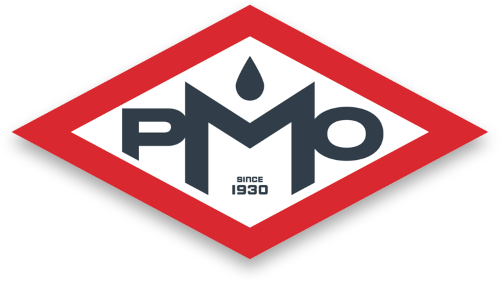Fuel Polishing: Enhancing Efficiency and Reliability for Your Machinery
In today's world, where efficiency and reliability are important, ensuring clean and high-quality fuel is essential. Fuel polishing is a specialized filtration process designed to remove impurities, water, sediment, and microbial growth from fuel sources such as diesel, gasoline, or biofuel. Over time, fuel can accumulate contaminants, compromising its quality and causing engine performance issues. Keep reading to learn more about fuel polishing and the benefits it offers.
What Is Fuel Polishing?
Fuel polishing involves the use of advanced filtration systems to remove impurities from fuel sources. These impurities can include dirt, rust, water, sediment, and even microbial growth. Fuel polishing is commonly performed on diesel, gasoline, or biofuel stored in tanks or used in machinery and vehicles. The process typically includes the following steps:
Filtration: The fuel is passed through specialized filters designed to capture and remove contaminants.
Water Separation: Water, which can lead to fuel system corrosion and microbial growth, is separated from the fuel using various tools, such as coalescers or centrifuges.
Polishing:
The filtered fuel is polished to achieve the desired cleanliness level, ensuring optimal fuel quality.
What Is the Importance of Fuel Polishing?
Clean fuel is vital for the smooth operation and longevity of machinery. Over time, fuel can accumulate impurities and contaminants that can negatively impact engine performance. These contaminants can clog filters, damage injectors, and cause engine failures. By regularly implementing fuel polishing, businesses can prevent these issues, resulting in improved equipment performance and reliability. Clean fuel also enhances fuel combustion, reducing emissions and improving overall fuel efficiency.
Furthermore, fuel polishing helps reduce the risk of microbial growth, which can lead to tank corrosion, clogged filters, and fuel system blockages. This is particularly crucial for industries that rely on backup generators or have equipment that operates intermittently, as fuel quality degradation can occur more rapidly during periods of inactivity. By addressing these challenges proactively, fuel polishing contributes to smoother operations, minimized downtime, and reduced maintenance costs.
What Are the Benefits of Fuel Polishing?
There are many benefits of fuel polishing.
Enhanced Equipment Performance
Fuel polishing removes contaminants that can cause fuel system blockages, reducing the risk of equipment breakdowns. Clean fuel allows engines to operate optimally, resulting in improved performance, increased power output, and smoother operation.
Extended Machinery Lifespan
Contaminants present in fuel can contribute to accelerated wear and tear on vital engine components. By removing these impurities, fuel polishing helps extend the lifespan of machinery. Clean fuel promotes better lubrication and reduces the risk of corrosion and abrasive damage, leading to overall improved durability.
Cost Savings
Implementing fuel polishing as a proactive maintenance strategy can lead to significant cost savings. By maintaining fuel quality, businesses can avoid expensive repairs, unplanned downtime, and premature equipment replacements. The reduction in equipment failures and fuel-related issues translates to improved operational efficiency and reduced maintenance and repair costs.
Environmental Impact
Fuel polishing aids in reducing emissions and minimizing the environmental impact of machinery operations. Clean fuel ensures efficient combustion, resulting in reduced exhaust emissions, including harmful pollutants and greenhouse gases. By adhering to stringent environmental regulations, businesses can demonstrate their commitment to sustainability and responsible practices.
Compliance With Regulations
Many industries, such as transportation, marine, and aviation, have strict regulations and standards regarding fuel quality. Fuel polishing helps businesses meet these requirements and avoid penalties or fines for non-compliance. Regular fuel analysis and polishing can ensure that fuel consistently meets the specified standards, promoting operational compliance.
Peace of Mind
Implementing fuel polishing provides businesses with peace of mind knowing that their machinery is operating with clean and high-quality fuel. It reduces the risk of unexpected breakdowns, equipment malfunctions, and fuel-related issues. This allows businesses to focus on their core operations without the added concerns of fuel quality compromising their productivity and efficiency.
Whether you own a backup generator, marine vessel, or industrial equipment, Paul Murray Oil, Inc., can help you make fuel polishing an integral part of your maintenance routine to safeguard your investment and enjoy optimal performance.
Contact us today to get started.
Office Hours:
Mon - Fri: 8:00 am - 5:00 pm • Sat - Sun: Closed •
24-Hour Emergency Service for Commercial Customers
2900 Phoenix Ave,
Jacksonville, FL 32206
